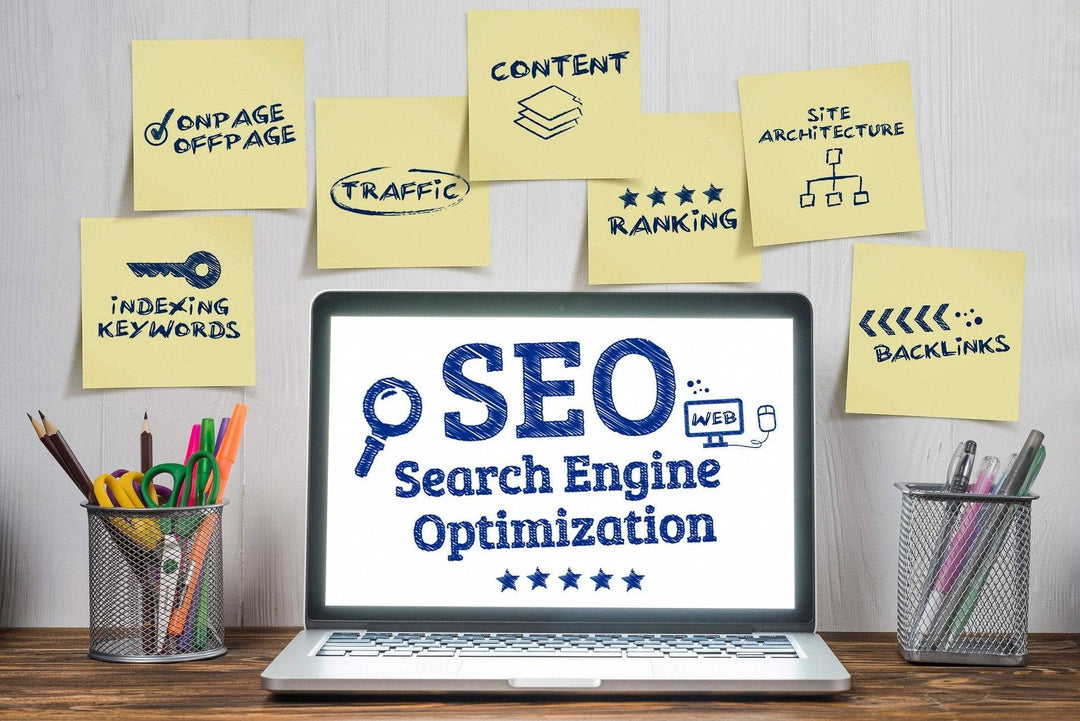A new shift is afoot in online marketing. Get ready to experience the new digital revolution! Google's BIG changes are going to impact your marketing strategies. Understanding the future changes and reshaping your marketing strategies is necessary to stay ahead in the digital world.
While you all are eager to know about the big changes, have you ever thought about why google changes its algorithm frequently? The answer is simple: To serve people and increase user experience.
Every change google introduces satisfy the interest of users. Increased privacy and security improve customer satisfaction, and ultimately, it takes you closer to the customers.
The behavior of the netizens changes frequently. Google's user-focused commitment is always in a rush to catch the pace of behavioral changes through its AI-based algorithm. The growing privacy concerns, the changing mode of shopping, and demand for a personalized virtual experience have been the pretext for the changes.
Alright! now let's take a glimpse at the upcoming Market changes that will revolutionize the future of eCommerce:
1. Expect a Big Shift in Privacy Policy by 2022

Google foresees user privacy as a key to success and engagement. Personalized advertisement or cookie-generated ads have a massive role in eCommerce. But, it is time to get ready to tackle the new change. Google is going to scrap the third-party cookies from the Google web browser.
This might be shocking to marketers and online vendors who have been using cookie-based ads to collect data and target customers. Though Firefox and Safari had phased out the third party cookie long before, Google has decided to phase out the third party cookies by 2022, as it needs time to make sure that the change will not affect online advertisers and eCommerce marketers.
Users have been demanding improvement in the privacy policy as cookies were collecting their data by posing serious security risks. The higher possibility of fraudulence through cookies was a concern for users and web giants as it affected the trust factor between clients and marketers. The new announcement looks forward to bringing brand innovation that pinpoints user's security and privacy as its future goal.
Google promises the time will not become a blackout period for eCommerce. A pro-privacy future is waiting ahead, that helps to build a strong connection with the customers through possibilities in machine learning and automated solutions. Stay informed and focus on building a privacy-safe ad-funded Internet.
2. New Campaign Level Conversion Setting & Analytics

The ongoing discussion on privacy concerns demands an alteration or remodeling of Google's analytics. Google's new analytic platform promises users' privacy without affecting campaign-level conversion settings.
Google Analytics 4, GA4 (The Apps+Web Property), is a new version that enables cross-platform and cross-device tracking. The new conversion or tracking remodeling in analytics offers a more insightful measurement of user data without breaking the privacy policy.
The shift in Google Analytics aims to overcome the consequence of the ban on cookies. The machine learning supported new analytics provide insightful data of customers journey by focusing less on individual metrics and more on how they communicate with your brand.
Marketers and advertisers need not worry about measurement gaps in analytics. The GA4 ensures the assistance of new conversion modeling to eliminate measurement gaps and open a new pathway towards behavioral reporting in analytics through machine learning and consented hashed first-party data.
The possibilities in analytics are growing high with behavioral reporting. Stay updated to see new modalities and optimization benefits of GA4 that helps you respect users choice and measure your performance by analyzing customers' unique journeys.
3. Integration with Shopify Foresee Massive Expansion

Google's democratization has launched an extensive platform for more than 1.7 million eCommerce marketers to connect with loyal customers. By crafting an open ecosystem, access to information has become more generous. Users can easily find and compare what they are looking for in an open environment.
The combination has helped merchants all over the world to simplify getting the product inventory live. Further, it put forward additional features like Shop Pay and Google Chart to help merchants and users smoothen their journey.
Google's new collaboration intends to provide small and large businesses equal opportunity to connect with customers. And it provides customers unparalleled flexibility in payment and shopping.
Unlike traditional checkout, customers need payment channels like Shop Pay that are environmentally friendly and easy to use with additional features that talk more about products and channels of delivery. The Big merger looks forwards to opening up new opportunities for merchants to connect with customers easily and fastly. But Shopify merchants need a unique marketing strategy that helps them stand out from the market, as too many choices may decrease sales. Stay focused to know more about the upcoming trends and strategies in Google-based Shopify stores.
4. Brand New AI-Innovation Promise Insightful Changes in eCommerce

Online marketing has grown abundantly in 2020 after the onset of the pandemic. Continuous lockdown and shutdowns have made traditional customers 'netizens'. But people are more concerned about trust and quality. How will the product look like? Is it useful for me? A million queries on trust issues are flooding the market.
Customers want to try before they buy. It brings them more connected to the brand. But is it possible on online platforms?
eCommerce retailers are looking for more technology-assisted solutions that help to connect with customers. Hopefully, Google has unveiled its AI-driven marketing plans for 2021 to keep loyal customers engaged throughout the shopping journey.
Augmented reality and virtual try-on mark a big leap for eCommerce. Luxury brands are now more into AI-based features to convince customers how they are unique. Reshaping your marketing campaign and designing AI-driven tactics help you personalize your brand effectively.
Regenerating physical store experience through Google's innovative augmented reality is the next big shift in eCommerce. Online vendors need to adopt this transformation to maximize the sale and build brand value.
Apart from Augmented reality and virtual try-on, numerous AI trends are going to transform the retail market in 2021. AI-based campaign operation, landing page experience, and Google’s prediction-based smart bidding are the new AI-driven Google ad trends. Keep an eye on the upcoming updates to dive deep into the AI trends.

Driving Towards the Future Market...
The four big Changes from Google will rephrase the face of eCommerce. An inquisitive approach is needed to track changes and adapt to them. Get ready to unlearn and learn with eComIntegrate. A new online marketing ecosystem is getting ready in the background. Power up your brand with more tools and strategies to survive in the race.
Stay tuned to know more about the online marketing future, new trends, and optimization methods in the upcoming sessions.
What's next: Unlocking Google's Privacy-First Future
[nerdy-form:11564]






Leave a comment